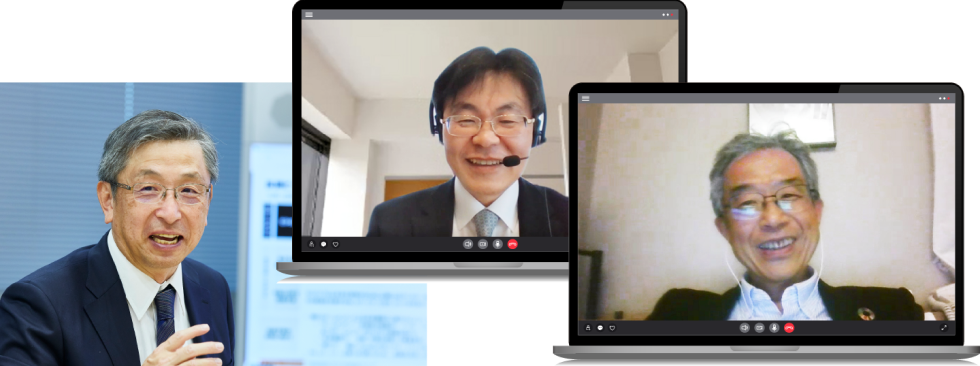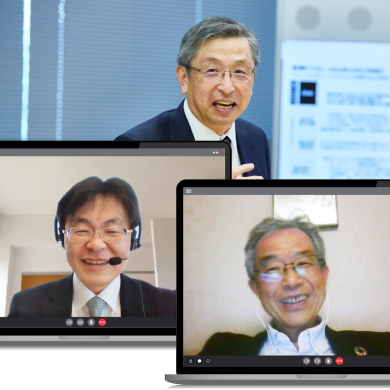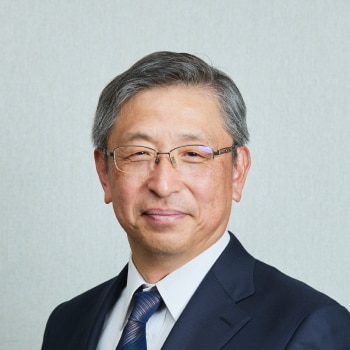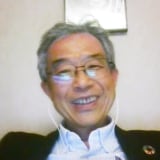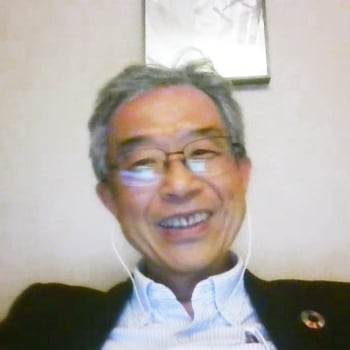Sustainability | Sustainability ManagementExpert Dialogues
TDK’s key issues (materiality), which plot the enhancement of corporate value and adopt the concept of synchronizing the sustainability of both society and company, comprise financial materiality (important items for TDK) and impact materiality (important items for stakeholders). After deriving financial materiality and impact materiality, we closely examined the two and selected our materiality. In this process, to check appropriateness and shortcomings from the viewpoint of stakeholders and to reflect the findings in our materiality, we held dialogues with three experts in February and March 2024 to hear their wide-ranging views based on the materiality draft under consideration at TDK. (Titles and affiliations of the experts are as of March 2024.)
Main Comments and Suggestions of the Experts
Excellent framework takes shape but also important to review flexibly in the light of practice
Koji Nitto
Nitto Koji Office (Former Director, Senior Managing Executive Officer, CFO, and Senior General Manager of Global Strategy HQ of OMRON Corporation)
Previously TDK’s materiality was set from a perspective emphasizing CSR. Through the latest revision, aimed at enhancing corporate value in the medium to long term, TDK has made its materiality easier to understand for stakeholders by positioning materiality as an important domain toward the realization of its Long-term Vision embodying its Corporate Motto and Corporate Principles. In the process of compilation, TDK has narrowed down its salient points to reflect the views of stakeholders both inside and outside the company. Going forward, it may perhaps be necessary to add materiality if there are shortages, prioritize issues, and change and respond. In practice on the ground, it is the job of management to clarify what “to do” and what “not to do” in efforts to address materiality and sort out what is feasible. In the sense that TDK has begun its evolution toward corporate value management, the latest systemic uplift deserves positive evaluation. I hope that it yields results and rises to the level of being a model for other companies.
Hoping for the capability to link KPIs and sustained earning power and to realize long-term strategy
Minoru Matsubara
Executive Officer in charge of the Responsible Investment Division, Resona Asset Management Co., Ltd.
Regarding the composition of TDK’s newly set materiality, it is well arranged and easy to understand. At the top they place “Establishment of value creation and competitive advantage through business activities,” and at the bottom they have “Strengthening of the management base to envision and realize the future.” Investors no doubt will be watching TDK closely from now on from the perspective of how future cash flow will be created through materiality. While incorporating the TDK style, it will be important to clarify the relationship between overall strategy and KPIs. In addition, if the KPIs do not function as expected, TDK will be required to verify what has caused the bottleneck and utilize the results in the next plan. Furthermore, to bridge the gap between corporate executives and the capital markets, it will be necessary to engage in appropriate communication while cleverly explaining impact materiality in an integrated manner.
Looking forward to steady efforts based on strong commitment and specific indicators and management techniques
Takeshi Mizuguchi
President, Takasaki City University of Economics
TDK’s newly set materiality point to key themes integrating financial and impact factors. I feel that it has been arranged through meticulous analysis, and I have no objection to the setting of materiality focusing on the long-term maintenance of competitiveness. However, the viewpoint that creating a positive impact on the environment and society, which is the foundation of economic activity, is important too. It would be even better if TDK showed its commitment to the issues of climate change and human rights as well. To incorporate DE&I into materiality, it is important to consider what indicators should be set and by what methods they should be managed. On the business side, the supply of products capable of contributing to the reduction of CO₂ is considered to be the source of TDK’s competitiveness, and there is a possibility of entry into such fields as green transformation (GX). I look forward to seeing TDK make appeals socially by putting forth qualitative stories and also take active steps to tackle such challenges as human rights issues in the supply chain.

